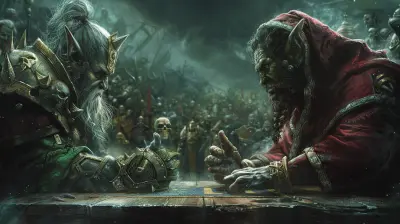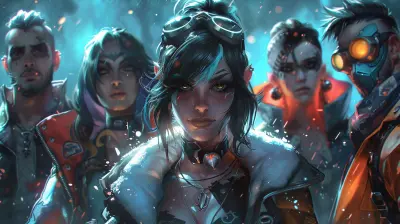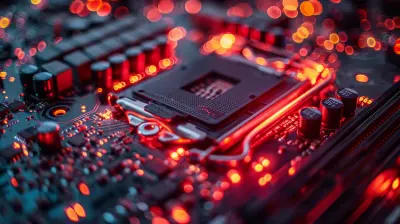What It’s Like to Be the Hero in a VR Game
30 September 2025
Imagine waking up in a world where you're not just holding the controller—you are the controller. Your hands, your voice, your decisions—they’re all that stand between salvation and destruction. Welcome to virtual reality, where you’re not just playing the hero… you ARE the hero.
Let’s talk about what it really feels like to step into the boots, armor, or space suit of a VR game hero. It's not just a gimmick. It's a ride—one that feels so real, it blurs the line between game and life. Sounds insane, right? Well, buckle up, because we're going deep into the rabbit hole.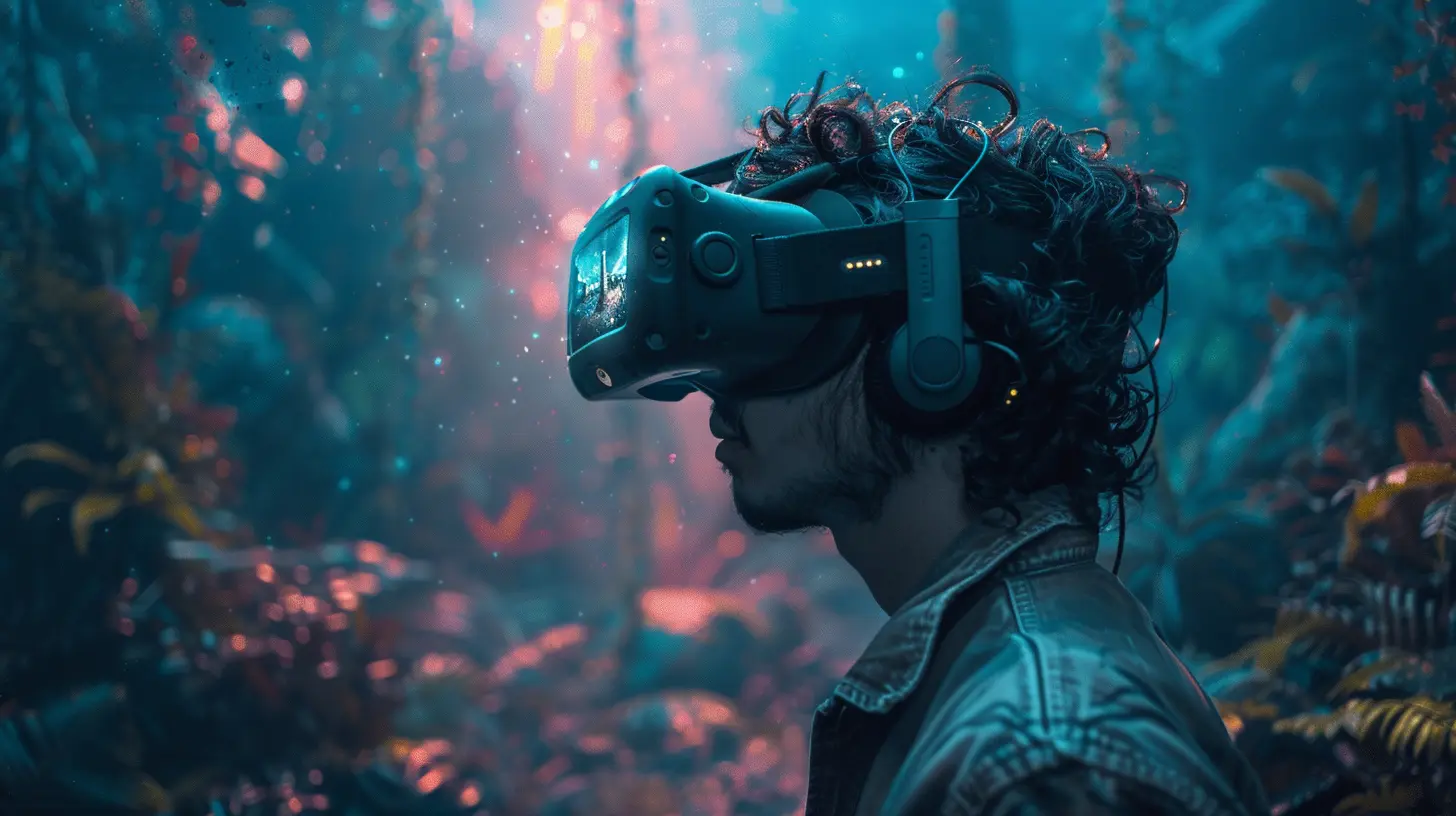
The Moment You Put on the Headset—Reality Melts
It all begins the second that headset slides over your eyes. Boom—gone is your living room. You're in a spaceship, a haunted castle, or standing atop a snow-covered mountain armed only with a bow and quiver.And it hits you immediately: this isn’t a screen you’re looking at. You're not observing the world anymore; you're inside it.
You look down—hey, those are your legs. Kind of. You reach out—and in-game hands mimic your own. Everything feels… off, but also right. That strange sensation? That’s your brain adjusting to a new type of existence.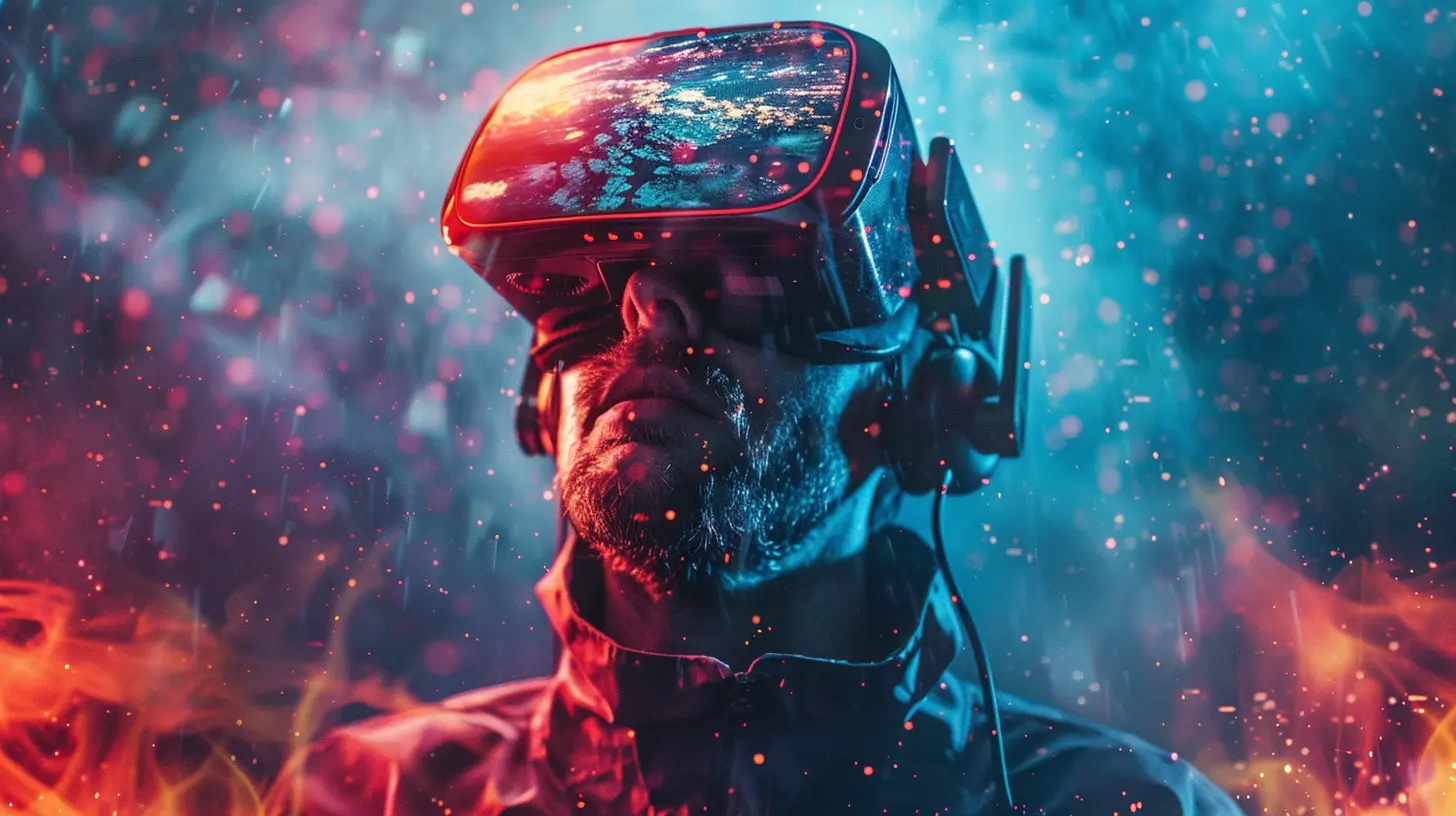
Total Immersion—You're Not Playing, You're Living It
Let’s be real: traditional gaming is cozy. You’re on the couch, maybe snacking on chips, pausing when needed. VR? That’s a workout. Not just physically, but mentally, too.You're dodging incoming fire, physically twisting and ducking. You're peeking around corners, sneaking like solid snake himself. Every move counts, because you feel in danger. You aren’t just losing a life—you’re risking your own (or so your brain thinks).
And here's where it gets wild: you're forming genuine emotional bonds with side characters. Why? Because they look directly at you. They talk to YOU. Not your character…you.
It’s not “Geralt did this” or “Lara Croft did that.” It’s “I did.” Heroism becomes personal.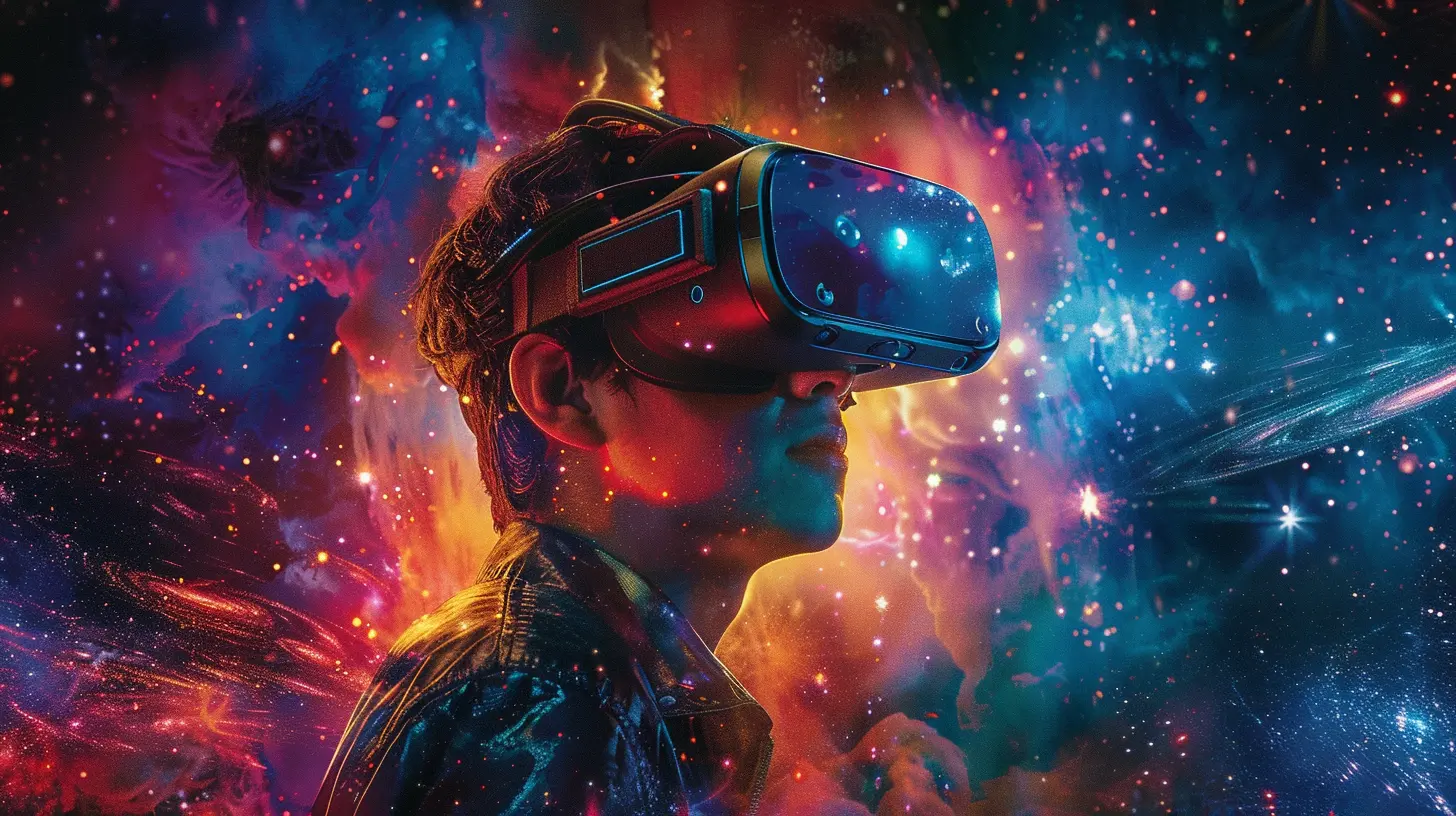
The Weight of Responsibility—You’re the Last Hope
Ever played a game where the fate of the world lies in your hands? Standard fare, right? But in VR, that responsibility feels a thousand pounds heavier. The AI’s eyes meet yours. “You're our only hope,” they say.And suddenly, you’re not just playing to win—you’re compelled to save them.
You've got sweat on your brow, your heartbeat is thumping in your ears, and every decision feels monumental. There’s no pausing for a snack break when you're protecting a virtual child from a horde of zombies or navigating a planet on the brink of collapse.
It’s intense. It’s emotional. Heck, sometimes it's terrifying. But it's also unforgettable.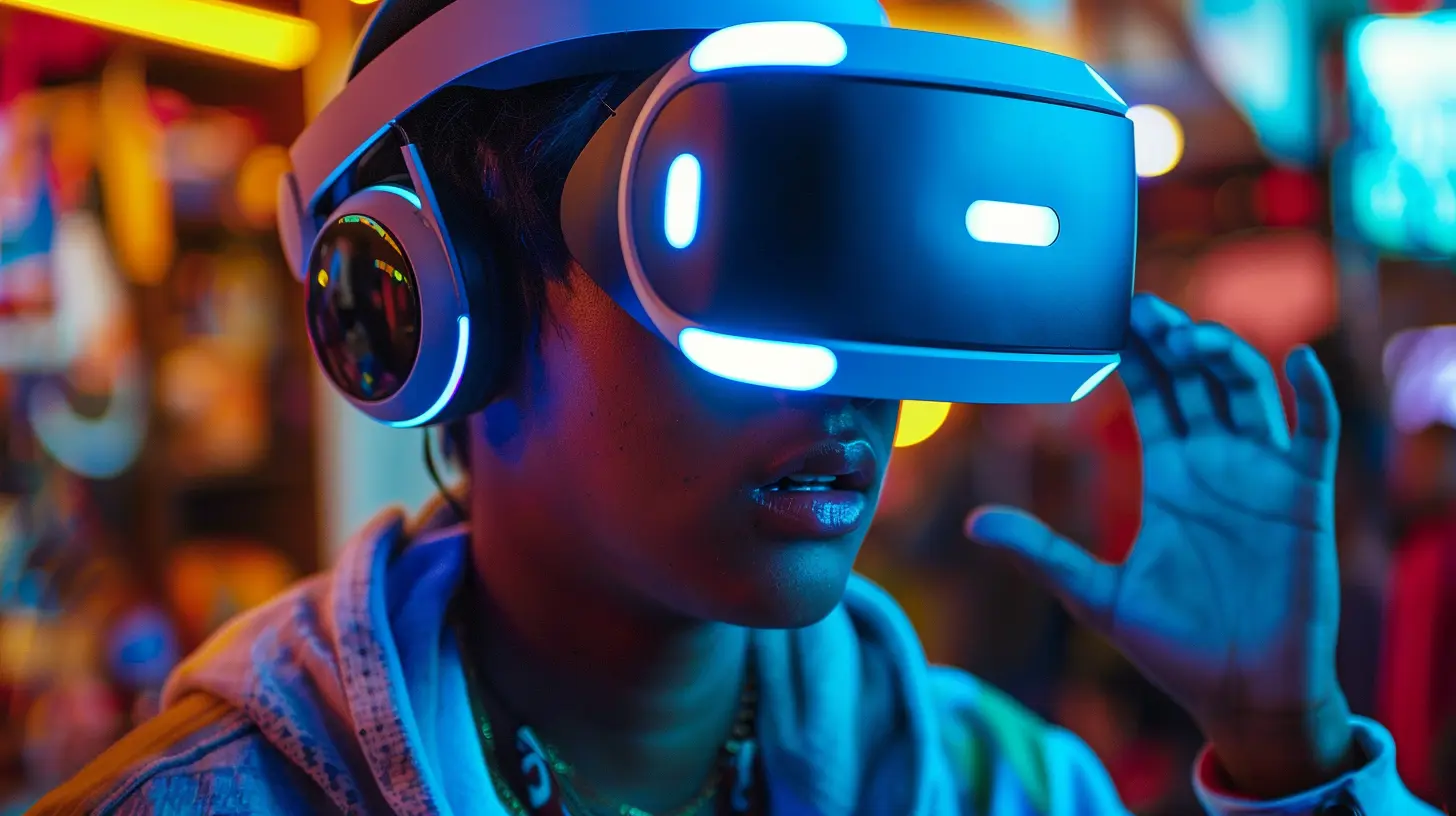
The Atmosphere Is a Character of Its Own
Let’s talk vibes. In VR, atmosphere isn’t just a background element—it’s another character.Dark corridor? You’re hearing your own footsteps echo. Forest at night? The rustling leaves make you spin around. The sense of presence is off the charts.
And these aren’t just pretty visuals or cool sound effects—they actually affect how you play. You find yourself whispering in stealth sections or freaking out when a sudden noise comes from behind you. It’s like being in a movie… where you’re the lead actor, and you don’t know the script.
Failure Feels Real, And That Changes Everything
In your standard game, you die. Meh. You reload. Try again.In VR? Failing hurts. Not physically (although running face-first into your coffee table is always a possibility), but emotionally. You just let your squad down. You see their faces drop. You feel the shame.
You hesitate more. You think twice. You care more. And when you finally succeed? The victory rush is like an adrenaline-fueled firework inside your chest.
You Start Becoming Your Character (No, Seriously)
You might go in just wanting to play a role, but the lines blur quickly.Play a hardened space marine long enough, and you start stomping around your room. Take on a stealthy assassin’s role, and suddenly you're quieter, more calculated—even in real life.
What’s happening? Your brain can’t quite tell the difference between simulated experiences and real ones. That’s a fancy way of saying you start adopting traits from your avatar without realizing it.
It’s kind of like method acting… except the role is controlled by your own instincts and reactions. Spooky stuff.
Empathy Through the Eyes of a Hero
One thing people don’t talk about enough is how VR gaming builds empathy.Say you're a hero in a post-apocalyptic refugee camp. You interact with scared NPCs, you hear their stories, and they react to you like you're one of them. You feel their struggle. You want to help.
On flat screens, we can stay detached. In VR, the emotional connection is visceral. It builds a deeper sense of humanity. You get to see what it’s like to fight for something bigger than yourself.
Even if it's digital, the feelings are real.
Every Hero’s Journey—Unique, Personal, and Yours Alone
In a VR game, there’s no one-size-fits-all path. Sure, the storyline may be set, but how you experience it? That’s entirely up to you.Will you be the bold leader or the cautious tactician? Do you charge in or sneak around? Will you show mercy, or take the shot?
The choices feel yours, and that’s powerful. It’s no longer about simply progressing through levels—it’s about living through moments.
Some VR titles even adapt to your playstyle. They remember your decisions, your behavior—and the world changes because of you. That’s immersion dialed up to 11.
The Post-VR Glow—Coming Back to Reality
The game ends. The headset comes off. You blink at the sunlight filtering through your blinds. And for a second, you're confused.It’s jarring. You’re back to your regular life, maybe a little sweatier than before, definitely a lot more inspired. There’s a peculiar emptiness that comes with leaving a world where you were essential.
But there’s also a high. A new memory bank of epic moments—dragon fights, near-death experiences, friendships forged in fire.
You didn’t just play a story.
You lived one.
The Future of Heroism in VR Gaming
Here’s the exciting part—this is just the beginning.With haptic feedback suits, eye-tracking tech, full-body motion sensors, and AI-driven NPCs, the line between game and reality is getting thinner by the day.
Soon, you might feel the weight of your sword, the raindrops hitting your armor, even the tension in a bowstring as you draw it back. Your voice might command troops. Your real-world gestures might form magical sigils.
The hero’s journey is evolving—and you’re at the center of it.
Final Thoughts—So, What’s it Really Like?
Being the hero in a VR game is like starring in your own blockbuster action film—with one major twist. You're not acting. You’re reacting. Everything feels instinctive, unscripted, real.It’s empowering, emotional, and occasionally a little terrifying. You’ll sweat. You’ll swear. You might scream... but you’ll have the time of your life.
And once you’ve tasted that kind of intensity, flat gaming just doesn’t hit the same anymore.
Ever wanted to be the chosen one? Don’t just dream about it. Put on a headset and live it.
all images in this post were generated using AI tools
Category:
Virtual Reality GamesAuthor:

Lucy Ross
Discussion
rate this article
1 comments
Astrid Montgomery
Immersive experiences really redefine heroism in gaming.
October 10, 2025 at 3:20 PM

Lucy Ross
Absolutely! Immersive experiences allow players to truly step into the hero's shoes, making every choice and action feel personal and impactful.
